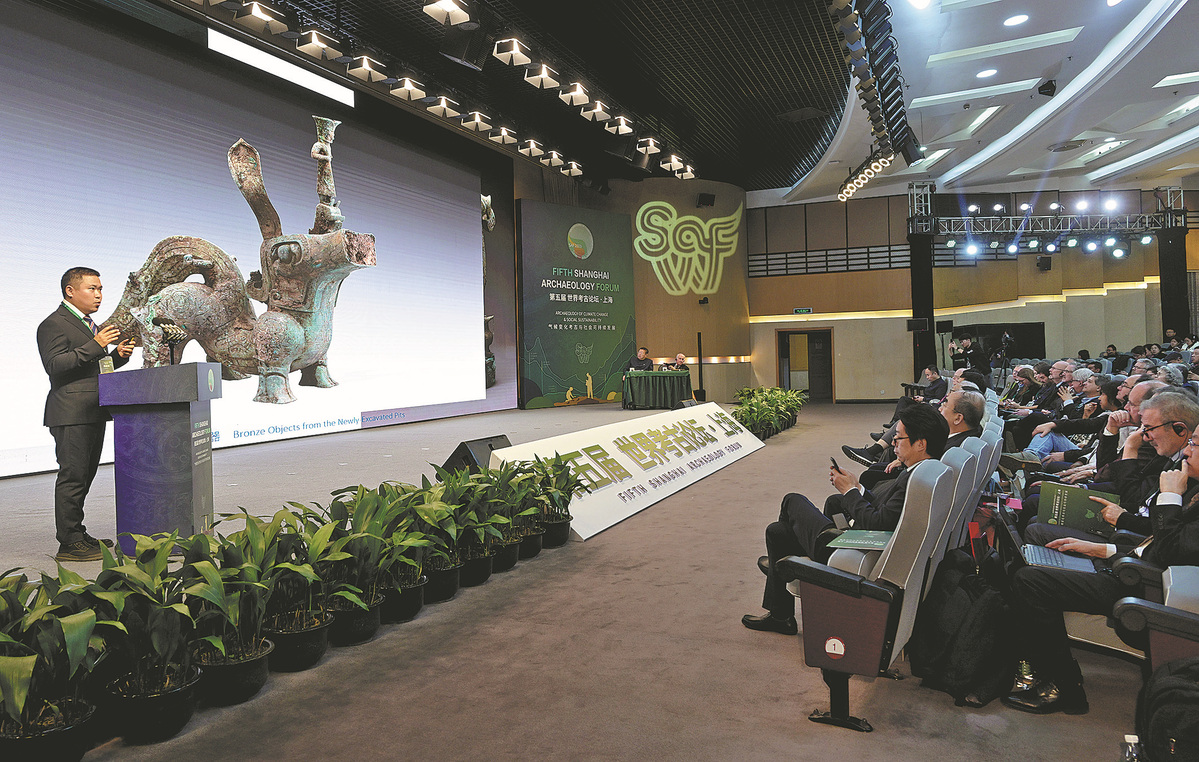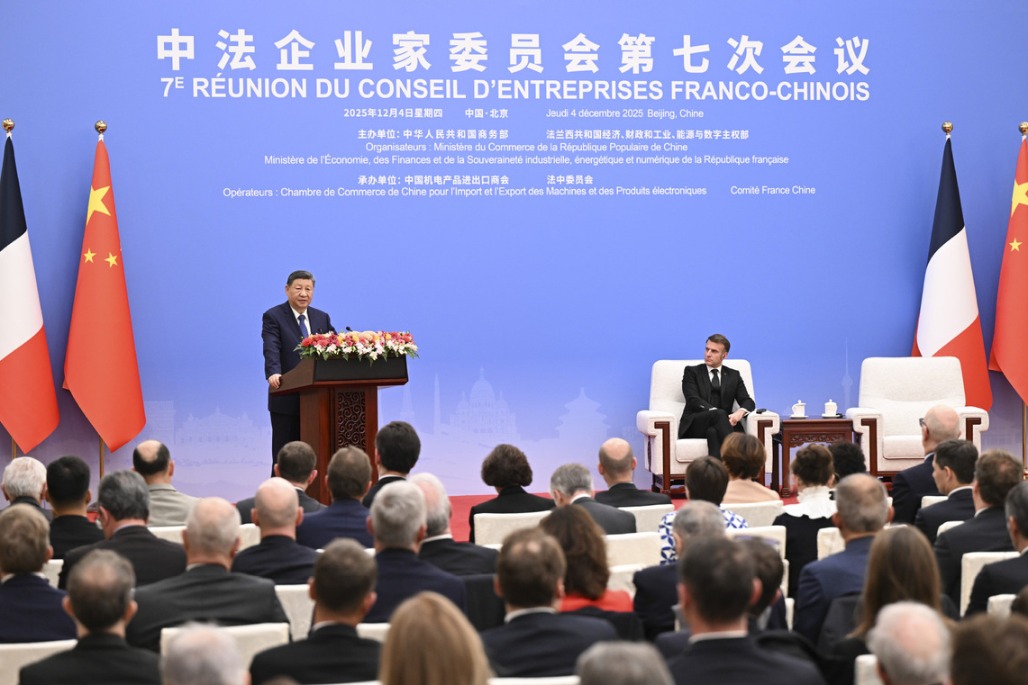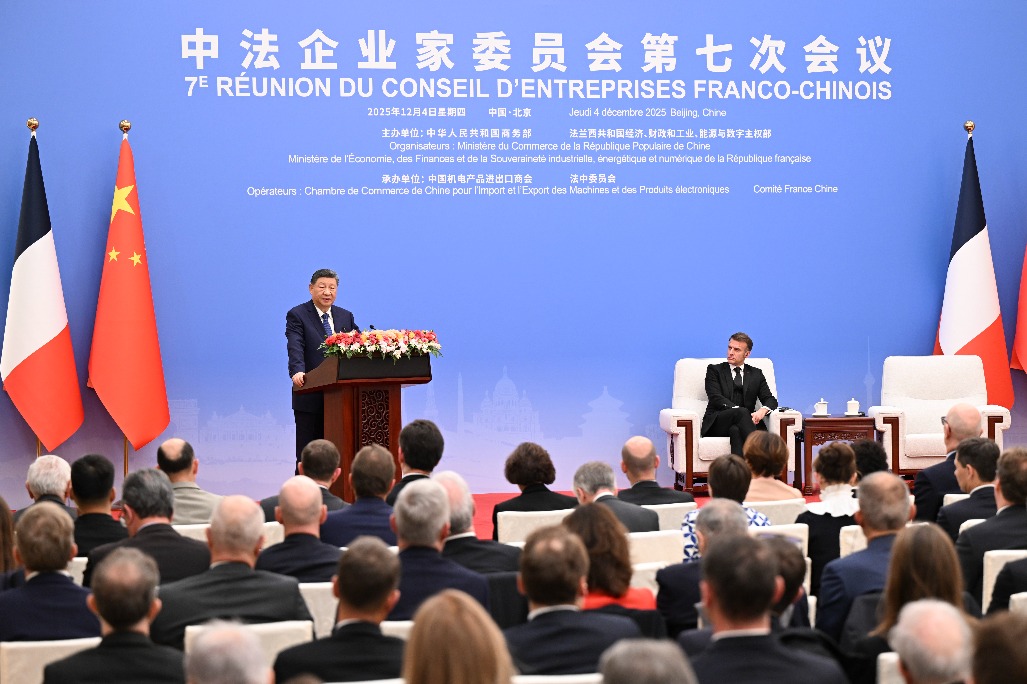Key archaeology findings awarded on Shanghai forum
By Wang Ru in Shanghai and Wang Kaihao in Beijing | chinadaily.com.cn | Updated: 2023-12-15 23:48

The marvelous discoveries in recent years at the Sanxingdui site in Guanghan, Sichuan province, and other breakthrough discoveries around the world decoding the infancy of human civilizations were recognized by global academia at the Shanghai Archaeology Forum on Friday.
Sanxingdui and eight other new findings were awarded SAF Field Discovery Awards, which were bestowed on individuals and organizations that have made important archaeological discoveries and studies in the past four years.
It is a way to "promote excellence and innovation in archaeological research ... and foster the protection and conservation of the world's archaeological resources and heritage", said the executive committee of the forum.
The four-day Shanghai Archaeology Forum, the fifth edition of this biennial key Chinese platform for international academic exchanges among archaeologists, which was jointly organized by the Chinese Academy of Social Sciences and the Shanghai municipal government, opened on Friday. More than 200 archaeology professionals from 40 countries and regions attended.
The new round of excavations on the 3,000-year-old Sanxingdui site that started in 2019 have focused on six newly found pits, which are widely considered to have been for sacrificial use.
More than 17,000 cultural relics have been unearthed from the pits, including goldware, bronze vessels, pottery and jade artifacts. Five of the pits were from a similar time, and the fragments unearthed from different pits can piece together intact artifacts.
Ran Honglin, a researcher at the Sichuan Provincial Institute of Cultural Relics and Archaeology, explained that some of the bronze vessels show similarities with those from contemporaneous sites in the Central China Plain, while others show unique features of the ancient Shu region — an ancient state in southwest China that lasted for more than a millennium until its fall during the 4th century BC — like statues of humans, animals and plants.
"Some human statues are made with extremely true-to-life details. "Their hands, legs and toes are very vivid," Ran said. "Such artifacts are rare in China."
Moreover, the jade artifacts are highly similar to those found in other sites in China, and the techniques to make them are not different. They reveal the close communication within a shared community of Chinese civilization in ancient times, Ran said.
Another key award-wining project is about the early monumental constructions at the Aguada Fenix site in Mexico. Recent studies have revealed the largest and oldest-known monumental Maya building, which may reshape people's understanding of early civilization.
The platform, which measures 1,400 meters in length and 400 meters in width, was built in about 1050 BC, before tall pyramidal construction became common in the Maya community, said Takeshi Inomata, a professor at the University of Arizona.
Among other awardees, in Gujarat, India, newly unearthed early-stage Harappan cemetery from 3200 to 2600 BC unveiled evidence predating urban settlement. Archaeologists also found the first European agrarian cities from 4100 to 3600 BC in Ukraine, early cave art in Sulawesi, Indonesia, and rock art painted in Colombia that unearthed lifestyles and worldviews of the first people in the Amazon forest.
Another 10 archaeological studies won SAF Research Awards. They excelled among long-term studies of world-famous sites like Apidima Cave in Greece, which provides early evidence of Homo sapiens in Eurasian, and Angkor in Cambodia.
The 19 award-winning projects stood out from nearly 1,000 candidates from across the world. The awardees were chosen by 83 archaeologists from more than 40 countries in two rounds of evaluation.
The Shanghai Archaeology Forum was inaugurated in 2013 as an international platform showcasing archaeological achievements, promoting archaeological research, and highlighting the modern significance of cultural heritage.
"We have always been devoted to innovation and cooperation, and wanted to offer ideas for the sustainable development of human society from the archaeological perspective," said Gao Xiang, director of the Chinese Academy of Social Sciences.
This year's forum is themed "Archaeology of Climate Change and Social Sustainability."
"Climate change influences the wax and wane of civilizations, and this theme reflects the shared concern of the international community," said Li Qun, director of the National Cultural Heritage Administration.
Also on Friday, Yan Wenming, an archaeology professor at Peking University, won the Lifetime Achievement Award by the forum for his in-depth and comprehensive research on Neolithic archaeology in China.
It is the first time this award has been bestowed on a Chinese scholar. Earlier award winners include US archaeologist Jane Buikstra and British archaeologist Colin Renfrew.
























